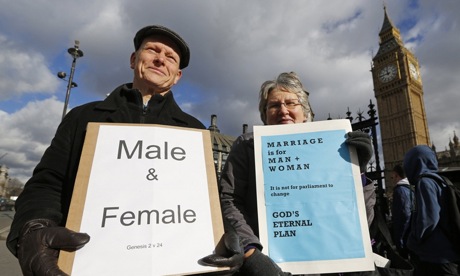After the House of Commons voted 400-175 to legalise same-sex marriages, Britain’s Catholic bishops warned the move would have profoundly negative effects on society.
“The proposed change will have catastrophic consequences for marriage as an institution, for family life in Britain, and for all human relationships, not least among our young,” said Bishop Philip A. Egan of Portsmouth.
He said he was very disappointed at the “Orwellian manner” in which Parliament wished to redefine marriage.
Bishop Egan said the bill might lead the Catholic Church to remove itself from civil marriage.
“One possible consequence of this is that the Church will be forced to withdraw from the civil registration of marriages, as in some European countries, where couples fulfill the civil requirements in the Town Hall before heading to church for Matrimony,” he said.
Though the bill was backed by Prime Minister David Cameron, it split his ruling Conservative Party: 127 Conservative MPs voted in favour, 136 opposed it, and 35 abstained.
The bill is expected to face stronger opposition when it is considered by the House of Lords.
The Church of England opposed the bill. The new Archbishop of Canterbury, Archbishop Justin Welby, said he stood with his brother bishops in strongly opposing the redefinition of marriage.
Meanwhile, the head of the Pontifical Council for the Family expressed support for giving unmarried couples some kind of legal protection.
While reaffirming the Catholic Church’s opposition to same-sex marriage, Archbishop Vincenzo Paglia said the Church should do more to protect gays and lesbians from discrimination in countries where homosexuality is illegal.
Archbishop Paglia said that there are several kinds of “cohabitation forms that do not constitute a family”, and that their number is growing.
He suggested that nations could find “private law solutions” to help individuals who live in non-matrimonial relations, “to prevent injustice and make their life easier”.
Nevertheless, he was adamant in reaffirming society’s duty to preserve the unique value of marriage as being between a man and a woman. Other kinds of “affections” could not be the foundation for a “public structure” such as marriage, he said.
Sources:
Image: National Catholic Reporter
